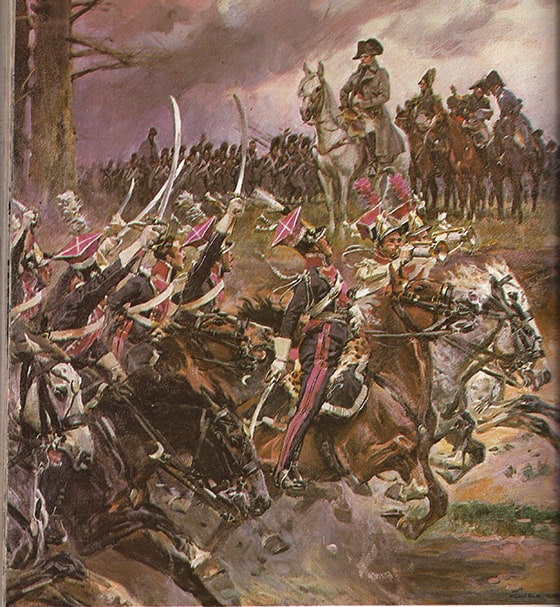
Ladies and gentlemen. FROM THE PEOPLE OF POLAND TO THE PEOPLE OF HAITI, our warmest regards and a reaffirmation of our Solidarity with you for another two hundred years. I am honored by your invitation to address you on this auspicious occasion, the eve of the two hundred anniversary of the Independence of Haiti. The road to independence for Poland and Haiti was not without horrible suffering and sacrifice. Two hundred years ago the world was dominated by empires and ruled by despotic leaders who not only oppressed their own countryman, but also those of other nations.
The Polish people through the ages not only fought for their independent from the Russian, Prussian, Germans and Austrians, but also for the freedom of other countries like the United States and Haiti under the banner, FOR YOUR FREEDOM AND OURS.
On May 3, 1791 the Poles established the first democratic constitution in Europe, 2nd in the world to that of the United States. Fearing that the Polish democratic disease would spread to their boarders and liberate their serfs, the emperors of Russia, Prussian and Austria entered into an alliance to destroy Poland. In 1792, only months after the Poles establish the first democratic Republic, Russia attacked Poland later joined by Prussia and Austria and partitioned the country in three parts. Poland did not exist as a nation until 1918 except for a brief time during the Napoleonic era.
By 1796, Napoleon Bonaparte promised the Poles that he would re-establish Poland as a nation if the Poles join his army. The Poles joined his ranks by the millions and formed the Polish Legions serving under Napoleon’s command. When he became victorious and an emperor, he forgot his promise to the Polish people. Instead of restoring the Polish Republic to its full national boarders, a token Grand Dutch of Warsaw was established, smaller then one fifth of the country. The Poles became very disillusioned with Napoleon because he did not honor his promise. As long as he lasted, so did the Dutch of Warsaw. By 1813 it was erased once again from the map of Europe until 1918.
One of colonies of the French Empire, Santo Domingo, now Haiti and the Dominican Republic rebelled against its master. Napoleon sent 50,000 men to quell the uprising. Among these soldiers were 5,000 Poles who served in the Polish Legion attached to the French Army. The Poles had no idea where they were being sent until they reached Port au Prince on September 2, 1802. They first thought that they were being shipped to Louisiana.
In the ensuing months by late 1802, 4,000 Poles were dead mostly from tropical diseases and military action. Seeing the suffering of the black people and their desire for freedom and independence, which coincided with their own, the Poles became convinced that they were participating in an immoral cause. By early 1803, the Poles began to disobey French orders and joined the rebels. General Dessalines, was so impressed with the Poles that he formed a Guard of Honor made up of all Poles on his staff. By November 1803, the whole remaining Polish contingent decided that they could no longer serve the French and during the Battle of Vertieres, the Poles joined General Dessalines.
After the revolution in 1805 when the constitution of Haiti was being drafted, the topic came up about what to do about the Poles who remained. General Dessalines said” THE POLES ARE TO BE ACCEPTED AS CHILDREN OF THE ISLAND, NATURALIZE ALL WHO WISH TO REMAIN WITH US. It seems that the Poles were the only Europeans that helped the Haitians during the revolution. Dessalines understood their character and their predicament.
Being unable to return to Poland and dissatisfied with Napoleon, about 400 remaining legionnaires adopted Haitian citizenship. They became mostly farmers. Today 200 years later, the descendents of the Polish legionnaires can be found in the following cities and villages;
Cazale
La Valle de Jacmel
Fond des Blancs
Port Salut
St Jean du Sud
Les Cayes
So today, in Haiti, I have distant relatives, their skin may be a little darker then mine, but in their veins flows Polish blood.
It saddens me to see that the Haitian people are still suffering after 200 years. Maybe their neighbors should join in an effort to help a nation of people whose island does not have strategic materials or oil reserves to sell on the world market, but a nation of people with a spirit for enterprise and a desire to participate in the world community to raise the standard of living and a better life for their children for generations to come. Empires come and go, but the yearning for freedom never dies.
ABOUT THE AUTHOR
A speech presented on 18 November 2003 before the Haitian-American Center for Economic and Public Affairs at Florida International University.
Dr. Wesolowski is Professor of Business and Transportation at FLORIDA MEMORIAL UNIVERSITY in Miami. He is a co-founder and Vice President of ABICC, Association of Bi-National Chambers of Commerce and the Polish American Chamber of Commerce of Florida. He is an amateur historian and an author of two books on Polish military history as well as in his field of business and economics. He is a retired US Air Force officer.





